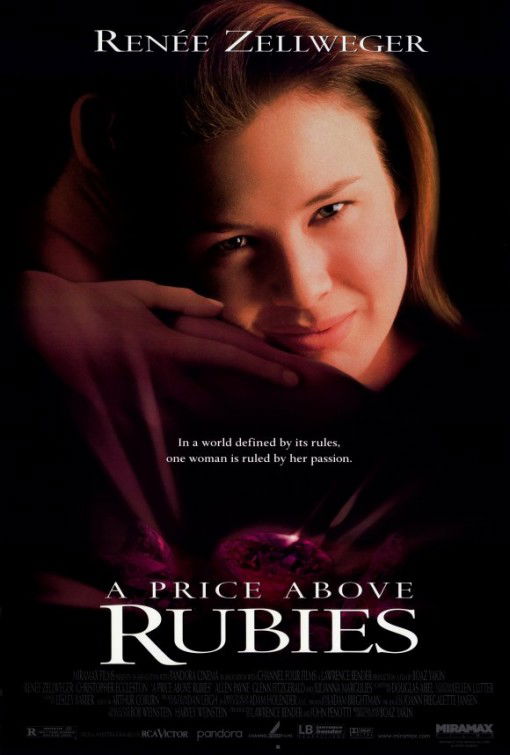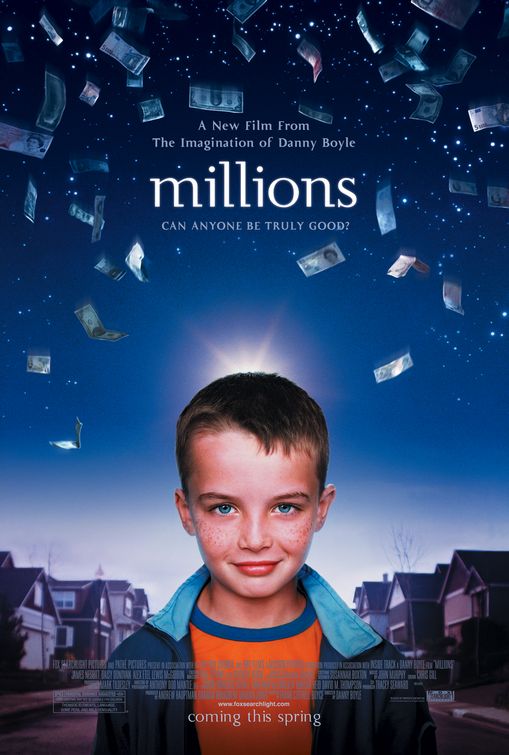"Seeking Freedom Through Sin"

| None | Light | Moderate | Heavy | |
|---|---|---|---|---|
| Language | ||||
| Violence | ||||
| Sex | ||||
| Nudity |
What You Need To Know:
The movie’s title, of course, comes from the Book of Proverbs’ passages describing a good wife, whose price is worth more than rubies. Thus the movie’s main themes may well be intended to be “feminist” ones which question traditional wifely stereotypes. This message may seem muddied to some viewers, especially to a non-Christian. Furthermore, the dialogue, which is heavily sprinkled with Yiddish terms not yet assimilated into the public vernacular, is somewhat esoteric. The movie also contains numerous objectionable elements. Though it is thought-provoking, A PRICE ABOVE RUBIES denigrates the faith of the Hasidic community and depicts sinful and carnal answers to deeper spiritual questions.
Content:
(Pa, C, AB, LL, SSS, NN) Muddled feminist worldview with Christian & Jewish elements, frequent questioning of God & values & vague mystical elements; 8 vulgarities, 2 obscenities & 2 profanities; no violence; marital sex & adulterous sex, implied oral sex, brief same-sex kiss, & two somewhat explicit sexual scenes; and, upper female nudity & upper male nudity.
More Detail:
Recent reviews for A PRICE ABOVE RUBIES have described the movie as a feminist morality play—a valid interpretation indeed. The movie also illustrates, however, viewers’ desperate need for the saving grace of God.
While its values may seem feminist, A PRICE ABOVE RUBIES can also be interpreted as a modern-day bildungsroman in which the main character—who happens to be female—has just begun the universal search for truth. Renee Zellweger is Sonia, a young Hasidic Jewish woman who feels trapped by the strict rules of her community and religion. She is married to a devout Orthodox scholar, Mendel (Glenn Fitzgerald), who shows her little affection or attention. When she tries to confide her spiritual and emotional confusion to him, Mendel responds with rote scripture and embraces his rituals more fervently. Desperate to express herself, to be touched and loved, Sonia questions the strictures of Orthodox Judaism, as well as the mind and nature of God, and is met only with appalled stares from her family. She tells the local Rabbi that she feels a fire burning inside her, a fire that has grown too hot to bear.
In an empty attempt to quench this “fire,” Sonia embarks on an affair with her vaguely menacing brother-in-law, Sender (Christopher Eccleston). The sexual scenes that result are primitive and even brutal. The illicit lovers are wallowing miserably in loneliness and depravity instead of experiencing a glorious awakening. Sonia’s entrapment is more effectively relieved when she accepts a position as a buyer for Sender. She embraces her newfound career with heartfelt enthusiasm—but her work demands too much time away from her new baby and husband.
Eventually, Sonia is ostracized by her community for shirking her wifely duties and spending too much time away from home. Cast out of the only community she has known, she becomes the stereotypical Wandering Jew, aimlessly roaming the streets, shunned by her own family (even her mother will not allow her to come home). She finally finds love the arms of a Puerto Rican artist, whose Catholic icons are prominently—and perhaps symbolically—displayed, but even this love does not satisfy her. She is still seeking truth, and doggedly continues her journey toward to self-discovery.
The movie’s title, of course, comes from the Book of Proverbs’ passages describing a good wife, whose price is worth more than rubies. Thus the movie’s main themes may well be intended to be “feminist” ones which question traditional wifely stereotypes. It is interesting to note, however, that the good wife described in Proverbs is “strong”−she ventures into the outside world daily to sell her handiwork instead of being confined to the home.
In any case, one cannot help but sympathize with Sonia’s intense sense of imprisonment: the “fire” that she struggles to contain is palpable. She seems not so much a feminist hero but a soul crying out for Christ’s perfect, passionate love and freedom from fleshly bondage. Religion depicted here exemplifies this bondage with its demand for a slavish adherence to ritual. The community denies and suppresses the human connections God created us to need. Sonia exemplifies the brokenness that is required before we can accept Christ’s forgiveness and allow Him to live through us. So it seems that when Sonia embraces a Catholic lover, she may be inadvertently seeking a relationship with the Creator. The possibility glimmers that the seed has been planted and that she will eventually discover the real Truth, who is the person of Jesus Christ.
This message may seem muddied to some viewers, especially to a non-Christian. Furthermore, the dialogue, which is heavily sprinkled with Yiddish terms not yet assimilated into the American public’s vernacular, is somewhat esoteric. The movie also contains numerous questionable or objectionable elements, such as a brief same-sex kiss and emotionally-detached sex scenes.
The Hasidic community has protested A PRICE ABOVE RUBIES as anti-Semitic. No doubt many members of that distinct community remember how Hitler pursued a mass media campaign which publicly denigrated their faith before he embarked on his campaign to exterminate their persons. During the Golden Age of Hollywood, birthed in the shadow of the horrible manipulation of the mass media of entertainment by the Nazi propagandists, the entertainment industry understood the value of never denigrating religion and willing adhered to article 8 of the Motion Picture Code when portraying religion in movies. Over the years, the entertainment industry has forgotten the wisdom of those standards, and the question arises whether there will be those few who will learn to depreciate the faith of the Hasidic community because of A PRICE ABOVE RUBIES.



 - Content:
- Content: 



